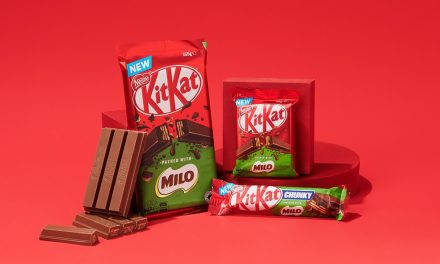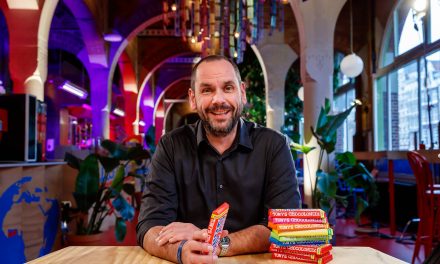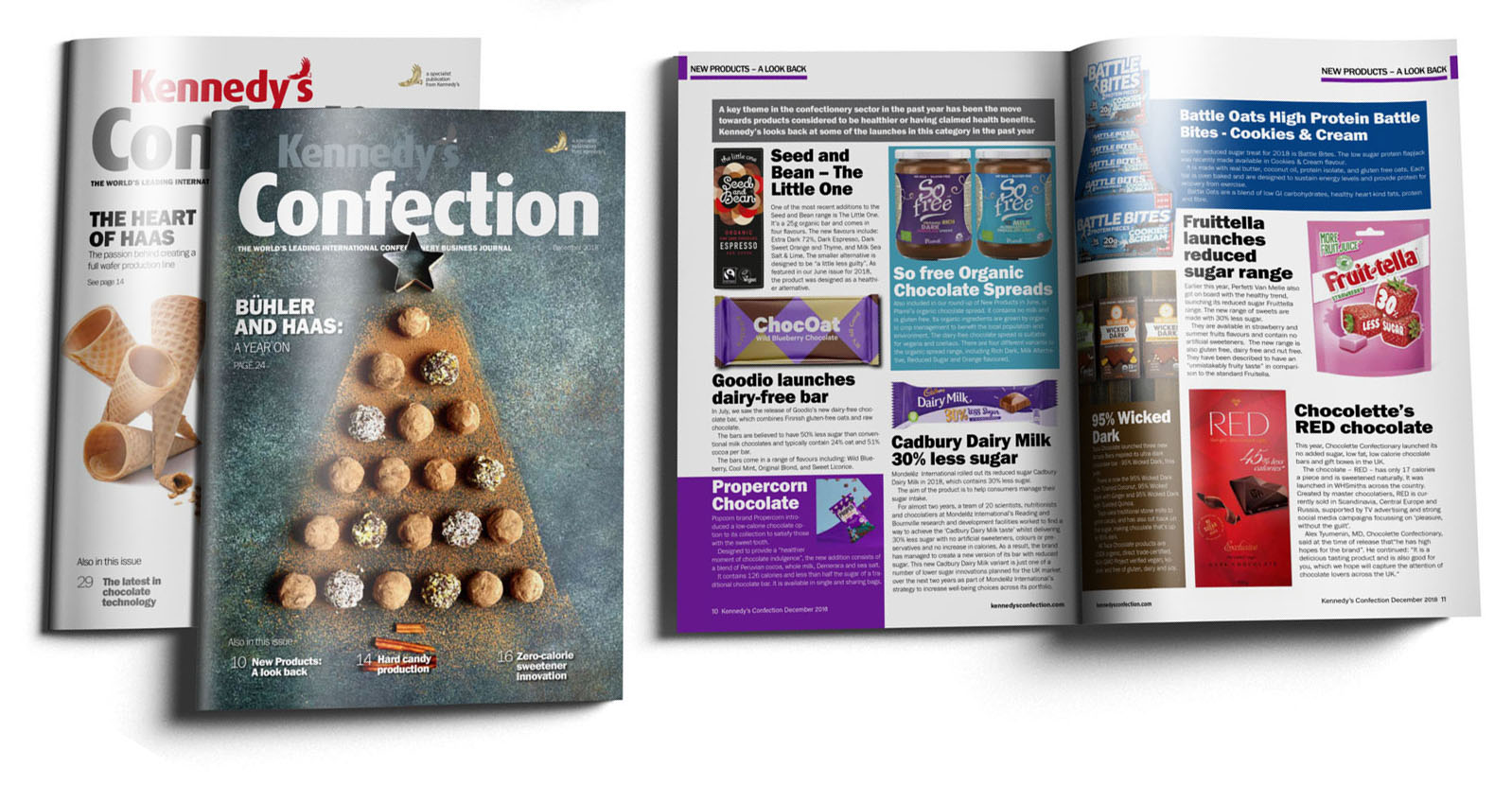Innovation is everything in this sector, and we continue to see great enhancements be introduced to the packaging category. From sustainable bagging options through to attention-grabbing designs, there’s many products being rolled out over the last few months. Here’s some of the highlights.
Sustainable solutions: Bag closure
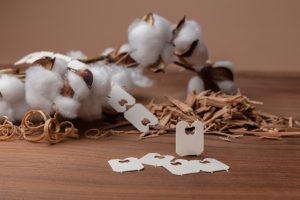
Last month, we saw Kwik Lok introduce what has been described as the ‘world’s first’ home compostable bag closure solution.
Fibre-Lok has been announced as an environmentally-friendly alternative to plastic bag closures. It’s composed entirely of natural cellulose wood and cotton fibres, and it provides the same reliability as the traditional Kwik Lok, while aligning with European sustainability standards for home compostability and plastics reduction.
Don Carrell, CEO, Kwik Lok, commented: “Fibre-Lok is another important step in Kwik Lok’s mission of transitioning the industry toward a sustainable future through innovation.
“We are committed to providing the tools our clients need to meet their sustainability goals. Whether it is greenhouse gas reduction, plastic elimination or compostability – we have the most effective suite of solutions on the market. Fibre-Lok is a significant step forward in the plastics reduction and compostability journey.”
This innovation comes asthe European Union has directed businesses to significantly reduce their use of plastic. Kwik Lok developed Fibre-Lok to meet these goals without sacrificing the functionality, quality, and durability that end users demand.
Key Fibre-Lok benefits include:
- Strength in streamlined form-factor – Fibre-Lok is just 0.70 mm thick but provides the strength of other Kwik Lok closures.
- Responsibly sourced – The Fibre-Lok wood pulp supply comes from FSC (Forest Stewardship Council) certified suppliers and renewable sources. FSC certification ensures that products come from responsibly managed forests that provide environmental, social, and economic benefits.
- Home compostable – Unlike other solutions that are only compostable in industrial settings, Fibre-Lok is home compostable.
- Compliant with new global regulations – Fibre-Lok meets or exceeds all known environmental and health regulations, including RoHS, REACH and CA Prop 65.
- Immediate implementation – Fibre-Lok can be used in any Kwik Lok automatic bag closing machine without modification. It can be used in 086 machines with only slight modifications. This means customers can convert their lines in just a few hours.
Standing out on the shelf
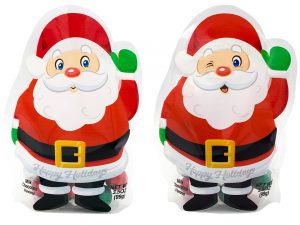
KM Packaging is another example of a company making significant improvements to its packaging range – its bagging offering in particular.
Its latest range of stand-up shaped pouches have been designed to ‘grab attention’ and ‘stands up to stand out’ from the crowd on supermarket shelves.
These pre-made, stand-up shaped pouches are the latest edition to KM Packaging’s portfolio and a major customer in the US has already been provided with pouches for confectionery products featuring thematic designs for Easter, Halloween and Christmas.
Suitable for dried snacks as well as confectionery, they have been printed with a heat sealable opening and are gusseted at the bottom, allowing the pouch to stand upright on retail display. In addition, they feature clear windows so the product can be seen by consumers or a solid white finish.
Other benefits include:
- High quality Roto-Gravure print
- Available with zip-lock reclosure
- Can be supplied in mono polymer structures (PE/PE and PP/PP) for better recyclability and using compostable materials
- Strong shelf appeal
- Ideal for seasonal sales
Sophisticated technology is used to make, shape, and cut the pouches, and KM’s print management knowledge and procedures ensure customers are provided with a high-quality eye-catching product.
The pouches can have a matt or glossy finish and clear windows. They are available in a traditional PET/PE structure or a mono polymer structure or using compostable materials.
KM Packaging’s commercial director Graham Holding said: “The pouches enhance our product range. And our team’s expertise makes sure that customers gain a cost-efficient solution, from sourcing to shipping.
“By broadening what we have to offer, the pouches help us to always provide our customers with the right packaging for their needs.”
Automated solutions

Moving slightly over to the baking category, Schubert is continuing to create tailor-made solutions for its customers. Recently, J. Skinner Baking approached Schubert for its help and expertise in technology for the automation needed to package its handmade Danish cakes.
J. Skinner Baking is one of the largest family-owned bakeries in the United States and produces more than 300 million pastries a year, including its Danish strip cakes, also known as Danish.
With the help of Schubert’s modular machine system, J. Skinner is now able to pack up to 160 Danish in one minute and load them into cartons ready for dispatching – an all-in-one solution.
One of the bakery’s specialties is laminated dough, which includes Danish cakes (laminating refers to the art of creating a perfect dough by repeated rolling and folding instead of kneading). This is one reason why J. Skinner, despite the very time-consuming production of an authentic Danish flaky pastry, adheres to its traditional production and does not accept any compromises.
David Skinner, Managing Director at J. Skinner Baking, commented: “Although most of our products are made by hand, we are naturally aware of the enormous importance of new automation technologies in the baked goods sector. These play a major role in the continuous improvement of our high product quality.
“An important step has therefore been investment in automation technology for our packaging process.”
With Schubert’s solution, the American company has now succeeded in simplifying its existing final packaging processes and placing them in a single packaging line. To this end, the Schubert experts developed a customised solution that could be integrated into the available line without restricting the existing production processes, while ensuring the time and cost-efficient handling of unplanned machine downtimes by integrating a bypass function.
Schubert’s all-in-one packaging solution combines several process steps.
Firstly, the removal of the freshly baked products from the baking sheets in the so-called “depanner” via the subsequent feed to the picker line, in which the cakes are picked from the belt and placed into clamshell packaging. The filled clamshells then pass directly from the picker line via feed belts into two identical case packers, where they are packed into the shipping cartons.
From the washing cycle to decoration
The modular complete solution consists of four packaging machines. The baked Danish are fed directly from the oven to the Schubert line. Each baking sheet is stocked with four coffee cakes.
The baking sheets are taken into the system by an F2 robot and placed on a stepping chain which transports the trays to the transfer area. There, the Danish are lifted out of the sheets from below by an NC unit and then placed onto the outfeed conveyor by another F2 robot. A third F2 robot transports the emptied sheets to an existing sheet metal washing unit.
After removal from the baking sheets, the cakes are decorated and fed to the Schubert picker line via a spiral cooler. There, a spreading unit separates the cakes for individual quality control before F4 robots place the Danish individually into the clamshells.
“This step is not about perfect positioning. In fact, it gives the system a high degree of flexibility and adaptability for future product changes,” explains Julian Conway, Sales Account Manager at Schubert North America.
The clamshells containing the Danish are then sealed, labelled, and inspected by existing machine equipment before being packed by two Schubert case packers into cartons of various formats ready for dispatching.
Risk-free to play it safe
A unique add-on is the integrated bypass function for removing the Danish from the baking sheets in the event of an unforeseen machine stop.
“We hadn’t even thought of such a bypass function when we first presented our ideas and wishes to Schubert. But once Schubert made us aware of the benefits of an integrated bypass system, we immediately recognised the added value,” recalls David Skinner.
To avoid a traffic jam of sheets in the future, the system allows the sheets to continue to be conveyed smoothly through the system at a higher level in the machine in the event of a fault. The new Schubert line therefore once again significantly increases the degree of flexibility while guaranteeing maximum production reliability.
Have you got any interesting innovations to share? Get in touch with the Kennedy’s editorial team at editor@kennedys.co.uk


